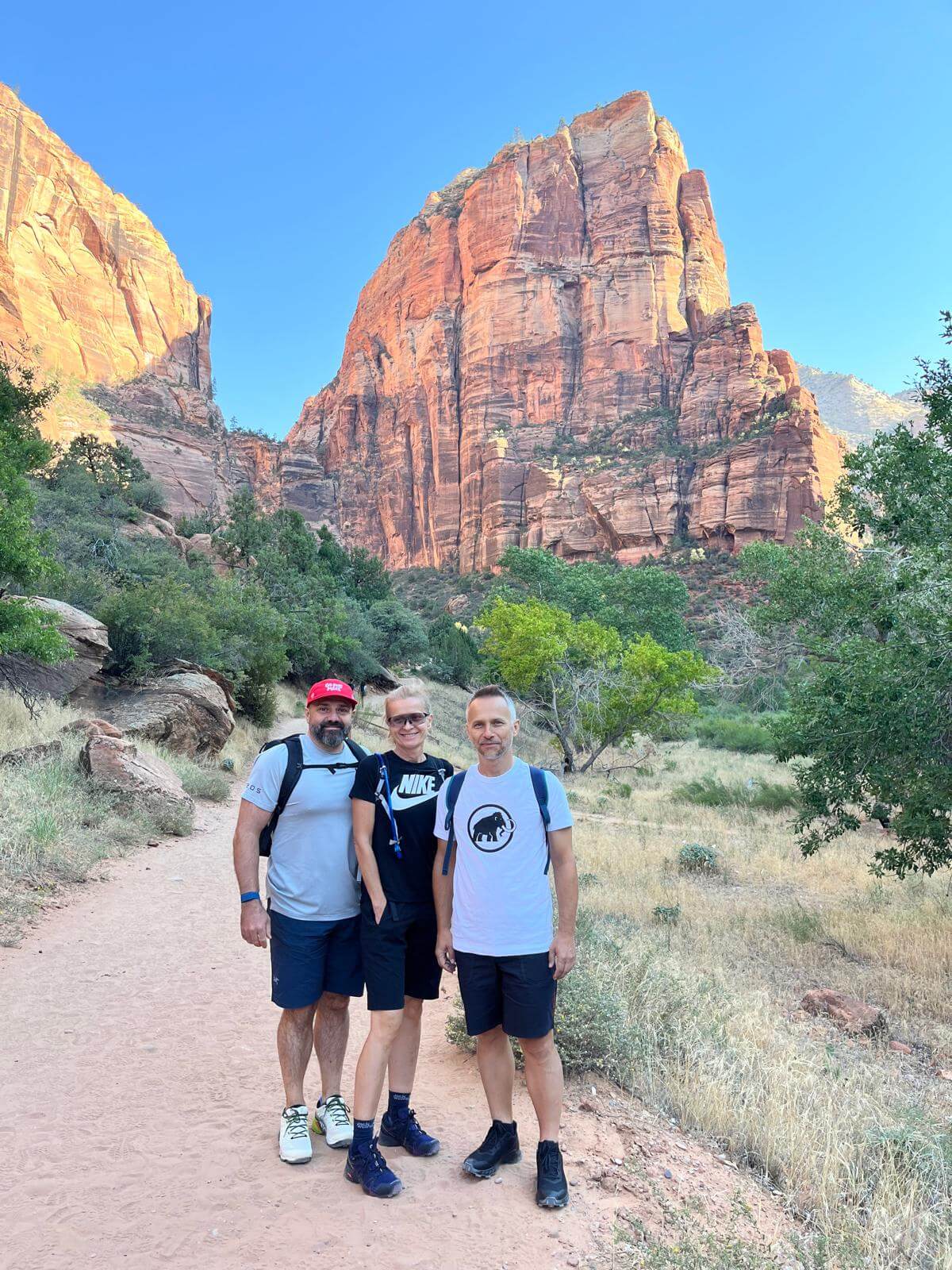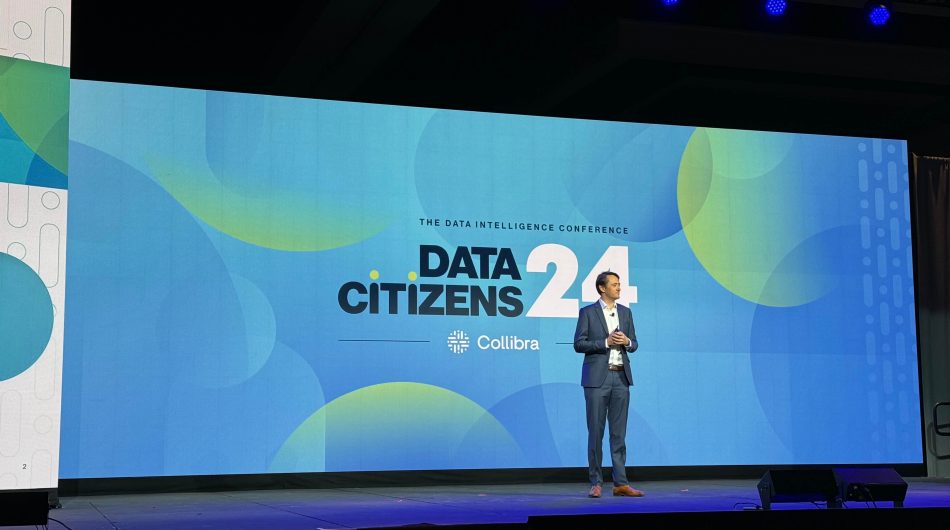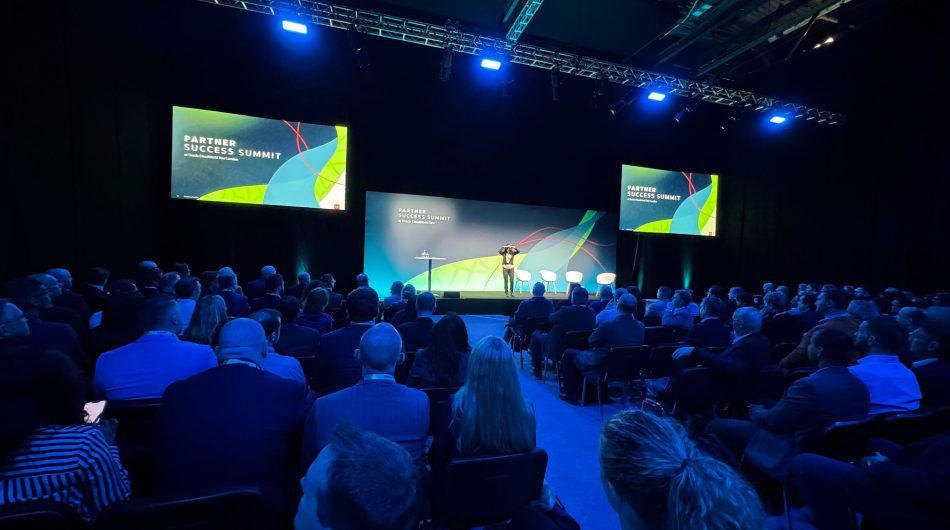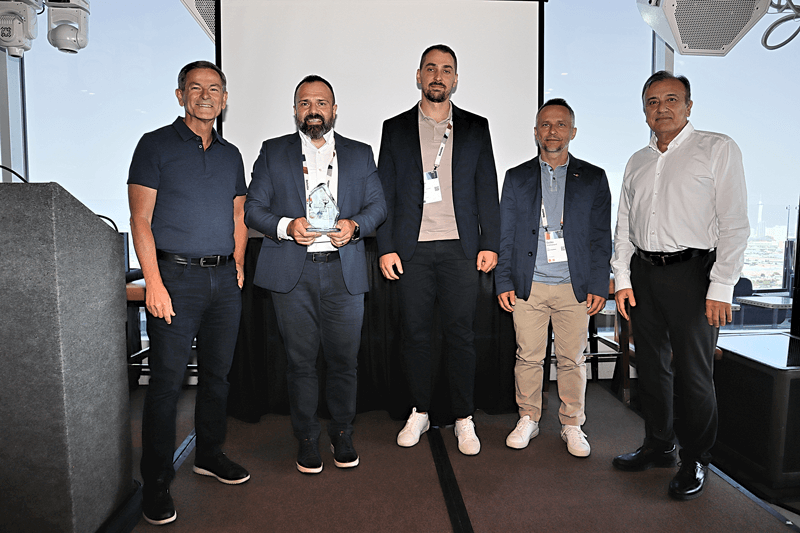
get in touch
Oracle CloudWorld in Las Vegas was a mix of important milestones and valuable lessons, creating a memorable week for our Neos team. I’d like to take this opportunity to reflect on and share the most significant moments from CloudWorld, both for Neos and the industry as a whole.
Neos wins the Oracle Customer Success Award
Our week began with great news – Neos was announced as the winner of the 2024 Oracle Third Party Technology Solutions EMEA Customer Success Award. This recognized our success in transforming one of Croatia’s leading retail chains, Studenac Market, through a comprehensive managed multicloud service. The service included cloud management and engineering, FinOps, CloudVane, and cloud support, resulting in significant improvements in scalability, security, and cost efficiency for Studenac Market.
Even better news followed only two days later, when Neos was announced the winner among all regional winners in the category and received the Best in Class in Customer Success Partner Award for Technology Service Providers.
Receiving the Best in Class Customer Success Partner Award is a testament to the dedication and expertise of our team. This achievement highlights our relentless pursuit of excellence in delivering scalable, secure, and efficient cloud solutions.
Oracle Global Leaders ISV Champion Award
The last day of CloudWorld brought another reason to celebrate. During the Oracle Global Leaders Worldwide Meeting, we received our third award of the week. Awarded by the Oracle Global Leaders program, led by my good friend Reiner Zimmermann, Vice President of Product Management at Oracle and head of the Oracle Global Leaders Program, we were recognized as the ISV Champion of the Year 2024.
We earned this award because CloudVane, our solution for multicloud cost management, is powered by Autonomous Database and built on OCI. After years of hard work to make CloudVane a FinOps-certified platform that delivers exceptional results for our customers, this recognition felt especially meaningful.

Enhanced Oracle PartnerNetwork program
Enhancements to the Oracle PartnerNetwork (OPN) were announced as part of Oracle’s broader strategy focused on cloud innovation, multicloud architecture, and partner engagement. These updates were discussed alongside major themes such as the multicloud era and the Oracle Autonomous Database, in keynotes featuring Oracle executives, including Oracle Chairman Larry Ellison and CEO Safra Catz.
The updates reflect Oracle’s commitment to a cloud-first, flexible engagement model, offering tailored paths for partners to collaborate based on their unique business strategies. A major highlight of the updated program is its multicloud capability, allowing partners to help clients run workloads across platforms like Oracle Cloud Infrastructure (OCI), AWS, Microsoft Azure, and Google Cloud. This flexibility enables companies to optimize performance, reduce risks, and improve cloud agility by selecting the best features from multiple providers without being locked into a single ecosystem.
Additionally, Oracle encourages partners to specialize in technologies like the Autonomous Database, promoting more efficient, self-managing systems. These enhancements empower partners to deliver better outcomes while reducing operational burdens for clients.
However, these changes also present challenges. Managing multi-cloud environments can introduce technical complexity, and specialization in Oracle’s advanced tools requires significant investment in training and infrastructure. Moreover, with more partners specializing, the competition to differentiate in the marketplace becomes tougher. Lastly, new corporate governance requirements may add operational overhead for partners, as they must comply with stricter procedural standards. Partners will need to carefully navigate the additional complexity and competition that comes with these changes.
Oracle stock prices turbulence
One of the key announcements during the conference was Oracle’s deeper integration with Amazon AWS, aimed at simplifying multicloud operations. This partnership allows Oracle customers to run applications seamlessly across both Oracle Cloud and AWS, reducing the complexity of managing workloads across multiple platforms.
This news created an immediate ripple in the market, with Oracle’s stock seeing a rise after the announcement. While some analysts hailed the AWS collaboration as a major step forward in Oracle’s quest for a larger share of the cloud market, the situation is more nuanced. I believe that this partnership wouldn’t have materialized without Oracle’s Autonomous Database, which played a critical role in driving this deeper integration. Oracle needed a competitive edge to bring AWS to the table, and it was the Autonomous Database that ultimately made this collaboration possible.
However, despite the stock’s initial rise, I can’t help but notice the timing. The uptick occurred just before stock option holders were due to be compensated, which means that those same individuals might now find themselves receiving less money. It’s a reminder that while Oracle’s strategic moves are often celebrated, there are often complex financial dynamics behind the scenes that don’t necessarily benefit everyone in the short term.
OCI and AI Advancements
Artificial intelligence (AI) took center stage at Oracle CloudWorld 2024, with several key announcements that highlight Oracle’s growing AI capabilities. Oracle introduced new generative AI services for Oracle Cloud Infrastructure (OCI), designed to empower businesses to develop secure, scalable, and adaptable AI applications tailored to specific industry needs. These tools open up exciting possibilities for companies looking to harness the power of machine learning (ML) and natural language processing (NLP) while ensuring scalability and security.
In addition to these AI tools, Oracle revealed updates to its compute, storage, and networking services, all aimed at reducing costs, enhancing security, and improving processing speeds. A significant highlight was the unveiling of Oracle’s AI-optimized infrastructure, which is specifically designed to handle the increasing demands of AI workloads, such as advanced NLP models and machine learning applications.
Oracle’s dedication to AI wasn’t just theoretical – attendees had the chance to experience it firsthand through the Winners Circle booth. Visitors could have their photos taken, which were then transformed by AI into dynamic, sports-themed environments. Our team had a lot of fun participating, and you can find some of our photos from the experience in the gallery at the end of this blog!
The importance of multicloud
Interconnecting the clouds was another key topic of Larry Ellison’s keynote. However, while the deeper integration of Oracle and AWS is a promising step, it does not automatically mean it’s easy to connect an application running in AWS to a database running in the Oracle cloud, Larry noted. A better approach, he suggested, would be to embed an Oracle cloud data center directly inside AWS. With this, he announced that Oracle Database@AWS will go live in December 2024.
Continuing this discussion, during the session Adopt FinOps and Maximize the Value of Your OCI Investments, Arun Ramakrishnan (OCI), Ramesh Venkat (OCI), and Soline Plichta (Apptio) stated that 98% of enterprises use or plan to use multicloud, with the key drivers being data sovereignty, cost optimization, and business agility/innovation.
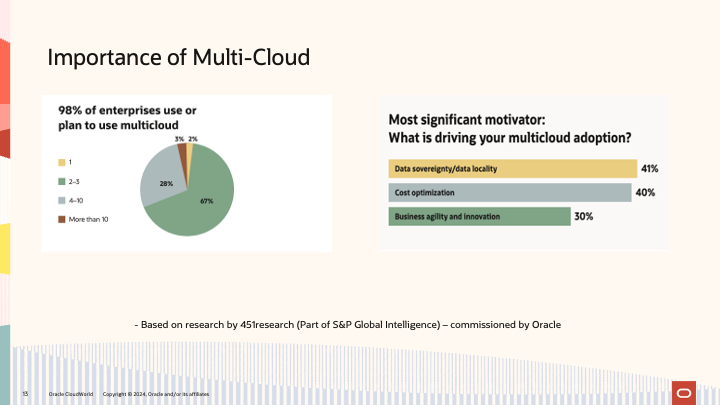
From the presentation "Adopt FinOps and Maximize the Value of Your OCI Investments" by Arun Ramakrishnan (OCI), Ramesh Venkat (OCI), Soline Plichta (Apptio)
Acknowledging the limitations of native tools, they shared that enterprises use an average of 4.1 tools to manage multicloud costs (source: State of FinOps 2024), with 21% of enterprises adopting FinOps platforms. In their presentation, CloudVane was named as one of the FinOps platforms supporting OCI.
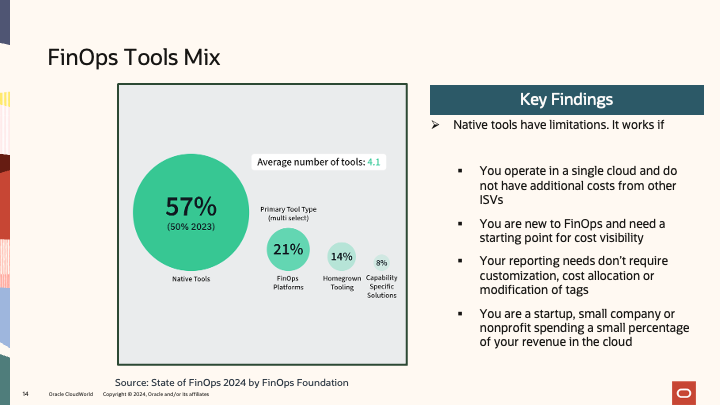
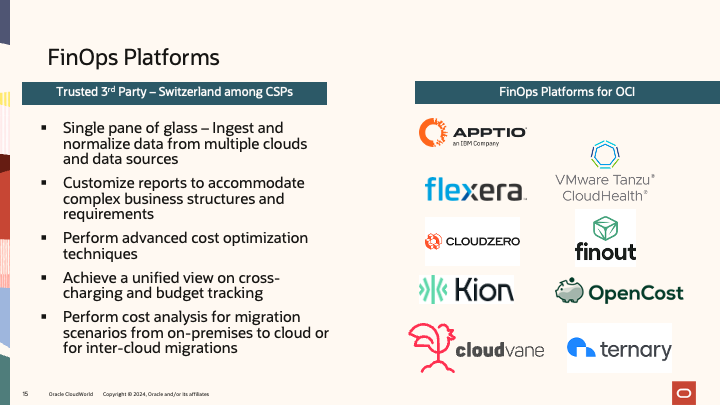
From the presentation "Adopt FinOps and Maximize the Value of Your OCI Investments" by Arun Ramakrishnan (OCI), Ramesh Venkat (OCI), Soline Plichta (Apptio)
CloudVane for chargeback in multicloud
For those interested in learning more about CloudVane, our FinOps & Cloud Manager Dean Misic held a session on implementing and automating chargeback in hybrid or multicloud environments. He demonstrated how CloudVane can be integrated with various business tools and how it can automate customer creation and management. Dean also presented two CloudVane case studies: one involving OCI DRCC Chargeback automation and another on scaling an MSP business with cloud services.
Pushing the boundaries
While not strictly related to CloudWorld, I always strive to challenge myself and those around me to pursue excellence, both professionally and personally. This year, I had the chance to fulfil a long-time dream – climbing Angel’s Landing in Zion National Park. I’ll leave you with a few images from the top and a heartfelt recommendation: if you haven’t taken the trail yet, I highly encourage you to do so!
